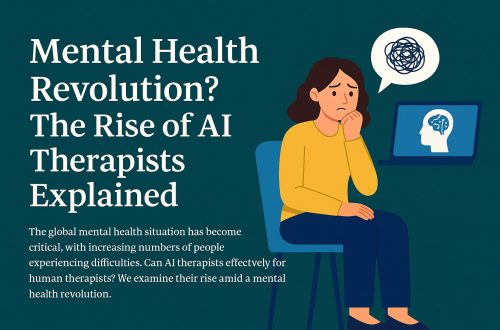Deepfakes, which are fake audio and video that look and sound authentic, have caused a huge dilemma over trust and identification in 2025. In a world where digital replicas of ourselves may be expertly made, society faces a serious ethical problem: how to protect authenticity.
AI-generated deepfakes are now so realistic that they are no longer just a novelty; they are a powerful weapon for spreading false information, stealing identities, and committing fraud. These fakes don’t just look like people; they sound like them, act like them, and even copy the smallest human expressions. This breaks identity verification systems and shakes the basis of democratic discourse. There have been films that seem very much like each other that show politicians or CEOs saying things they never said. This has seriously damaged public trust and caused uncertainty at the highest levels.
As this story unfolds, technology is turning against itself. In an amazing AI arms race where machines defend against shady machine methods, detection has made huge strides. It can now look at micro-expressions, small changes in face blood flow, and auditory discrepancies that are hard to see with the human eye. Also, blockchain is becoming more popular since it provides unchangeable digital ledgers to verify the sources of content. This makes it a very new way to restore trust when visible proof isn’t enough.
However, technical countermeasures constitute merely a segment of the ethical discourse. Identity theft using deepfakes, which happens every five minutes, shows how weak traditional identity management is. Organizations must urgently reevaluate authentication frameworks, adopting multi-modal verification that extends beyond conventional biometrics, as only dependence on facial or voice recognition proves dangerously inadequate against synthetic impersonators.
Deepfakes also fundamentally question ethics about privacy, permission, and protecting one’s reputation. With democratized access, anyone—public figures or private persons alike—can be influenced or discredited through counterfeit digital doubles. The consequent loss of trust puts more than just individuals at risk; it puts society’s institutions at risk, shaking the foundations of democracy and justice.
Leaders in business and government are at a crossroads: they can either choose to be open, spend money on strong defenses, and write laws that look to the future, or they can give in to a time when identity is fluid and truth is optional. This is a time when we need to be hopeful because of our inventiveness and our moral responsibility. We can get over this digital problem by using AI-driven detection, clear verification, and strict ethical standards.
In the age of deepfakes, we need to rethink digital trust and identification. We need to find new ways to show who we are and figure out who to believe. The problem is big, but the chance is just as big: to make a digital future where technology strongly defends privacy, keeps the truth safe, and maintains the holy thread of truth.
—
**Important Ethical Issues and Problems in the Deepfake Industry**
– **Loss of Identity Verification:** Deepfakes make it impossible to use facial and voice recognition, therefore multi-factor, behavioral, or blockchain-based authentication techniques are needed.
– **Misinformation on a Large Scale and Manipulation of the Public:** Fake news changes the way people think about politics and threatens the integrity of democracy.
– **Consent and Privacy Violations:** Using synthetic representations without permission violates people’s rights, hurting their reputation and costing them money.
– **Economic Impact of Fraud:** Deepfake-enabled schemes, like high-profile impersonations that steal billions, show how big the financial threats are.
– **Technological Arms Race:** AI-powered detection, which uses audio forensics, micro-expression analysis, and metadata scrutiny, is essential for finding lies.
– **Gaps in the Law and Regulations:** Policymakers have a hard time keeping up with new technology, which shows how important it is to have strong rules that safeguard identity and digital authenticity.
Society may regain trust in identity, even when it’s made in digital shadows, by facing these problems head-on with new technologies, ethical vigilance, and cooperative governance.



